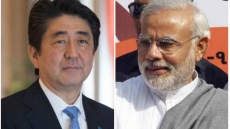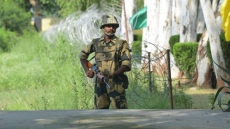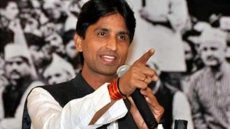Prime Minister Narendra Modi Tuesday appealed to the 1.25-billion Indians to join him in cleaning up the filth that has brought a bad name to the country.
"I want all of you to join me in the Swachh Bharat Abhiyan (operation clean-up) programme our government is launching across the country Thursday, marking the 99th birthday of Bharatiya Jana Sangh leader Pandit Deendayal Upadhyaya," Modi told a huge gathering of BJP cadres at HAL airport on arriving here for the first time after becoming prime minister.
Thanking the people of Karnataka, especially Bangaloreans, for voting the Bharatiya Janata Party to power with absolute majority and providing a stable government after three decades, Modi said he decided to rid the nation of filth with the help of citizens and make India a clean and safe country.
"I came here to beg you to spare 100 hours in a year, or two hours in a week, to clean up your dwelling, surroundings, locality (mohalla), city, town or village and maintain cleanliness so that none dare say our country is filthy or dirty," Modi said in Hindi during his 30-minute speech.
Exhorting the people to be hygienic and maintain cleanliness, the prime minister said though it was a tradition across India to spruce up homes, buildings, offices and shops to celebrate the festival of lights Diwali every year, the exercise should be continued throughout life to remain healthy, fresh and active.
"Though all citizens do not get an opportunity to serve the country by fighting on the borders or sacrifice lives as martyrs, we can serve the nation by joining the operation clean-up and liberate India from filth by 2018 as a tribute to the father of the nation (Mahatma Gandhi) on his 150th birth anniversary," Modi said.

Recalling his Independence Day address from the Red Fort in Delhi, where he urged people to take up the drive to clean up the country, Modi said critics wondered why he was giving importance to small things like cleanliness and keeping the house in order.
"I want to tell them (critics) that I will focus only on small things and activities that touch the lives of ordinary people than concentrate on big things or big people because I am a small man from a poor family and hence I want to empower the poor to make the country strong and resilient," he said.
The prime minister also lamented over poor sanitation conditions in cities and towns and expressed regret that even six decades after independence, thousands of homes and schools across India lacked toilets, especially for women and girls.






